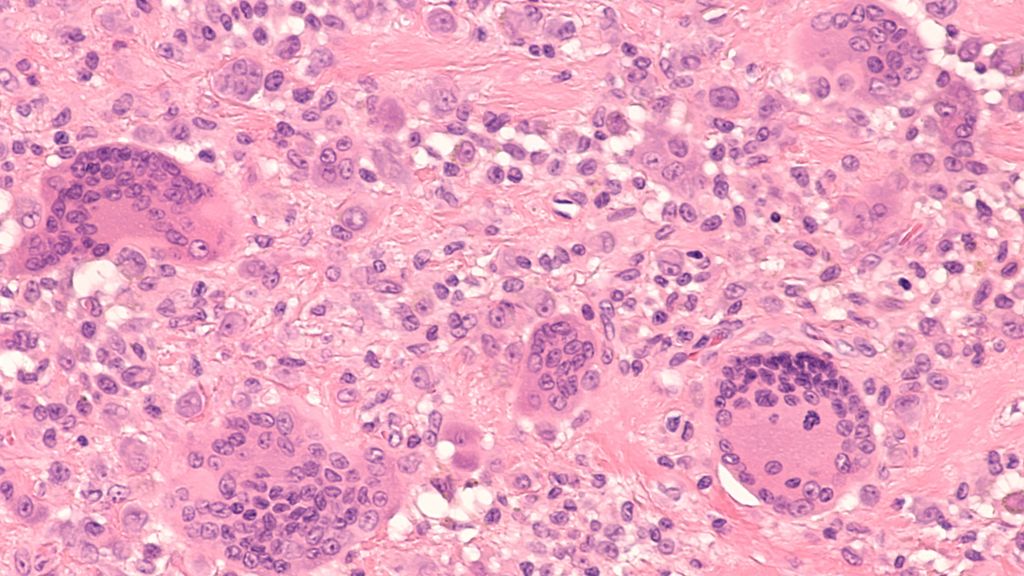Abbisko Therapeutics Co., Ltd. has announced that its CSF-1R inhibitor Pimicotinib has been granted the breakthrough therapy designation from the FDA for the treatment of tenosynovial giant cell tumor (TGCT) patients that are not amenable to surgery.
The designation approval is based on results from the phase Ib clinical trial of TGCT cohort for Pimicotinib.
Pimicotinib is the first new-generation CSF-1R drug candidate recognized by the US FDA as a breakthrough therapy. Pimicotinib was awarded Breakthrough Therapy Drug certification by China’s Center for Drug Evaluation, NMPA (National Medical Products Administration), in July 2022.
“We are very pleased to learn that the FDA has granted Pimicotinib the breakthrough therapy designation. The granting of this designation also marks an essential step in the R&D and innovation of Abbisko Therapeutics in going global,” Xu Yao-Chang, chairman and CEO of Abbisko Therapeutics, said.
“Pimicotinib’s U.S. breakthrough therapy designation shows FDA’s recognition of Pimicotinib’s early data and affirmation of the company’s R&D strength. It will make our clinical development process and finished drug progress more efficient, which will help shorten the time to market and benefit patients worldwide as soon as possible.”
Breakthrough Therapy designation is a process designed by the US FDA, China CDE, and other regulatory agencies to expedite the development and review of drugs that are intended to treat a serious condition, and preliminary clinical evidence indicates that the drug may demonstrate substantial improvement over available therapy on a clinically significant endpoint.
Pimicotinib is a novel, orally available, highly selective, and highly potent small molecule inhibitor of CSF-1R independently discovered and developed by Abbisko Therapeutics. A number of studies have shown that blocking the CSF-1R signaling pathway could effectively modulate and change macrophage functions, and potentially treat many macrophage-dependent human diseases. Pimicotinib is currently being investigated as a treatment for tenosynovial giant cell tumor (TGCT) and cGVHD, and under evaluation as treatment for a number of other indications.
In October 2022, Abbisko Therapeutics obtained CDE approval to conduct a phase III clinical trial in TGCT for pimicotinib. Prior to this, pimicotinib demonstrated significant antitumor efficacy in a phase Ib trial in patients with TGCT, achieving a preliminary overall response rate of 68.0% and favorable safety profile.
Abbisko Therapeutics also completed a phase Ia dose escalation study for ABSK021 in the U.S. and is conducting an ongoing phase Ib multi-cohort expansion trial in both the U.S. and China. In addition to TGCT and cGVHD, Abbisko Therapeutics is exploring the potential of ABSK021 in treating other types of solid tumors and has collaborated with Sperogenix (Shanghai) MedTech Co., Ltd. to explore its potential for treating amyotrophic lateral sclerosis (ALS) among other central nervous system disorders. To date, no highly selective CSF-1R inhibitor has been approved in China.
About TGCT
TGCT, also known as pigmented villonodular synovitis, is a locally aggressive neoplasm affecting synovial joints, mucous sacs, and tendon membranes, resulting in swelling, pain, stiffness, and decreased activity of the affected joints which seriously affect the patient’s quality of life.
According to the 2013 World Health Organization classification, TGCTs were classified as localized TGCT and diffuse TGCT. Compared with localized TGCT (80%-90%), the incidence rate of diffuse TGCT is lower (10-20%). Overexpression of colony-stimulating factor 1(CSF1) occurs in most TGCTs.
Surgical resection is the standard treatment for TGCT. However, not all patients are suitable for surgical treatment. It is difficult to remove tumors of diffuse patients by surgery, which may possibly lead to severe joint damage, total synovectomy, joint replacement, or even amputation, and the risk of surgical complications can be high. It has been reported that more than 50% of patients with diffuse TGCT will undergo recurrence after surgical resection. For those TGCT patients not amenable to surgery, there is currently no approved drug available in China.





